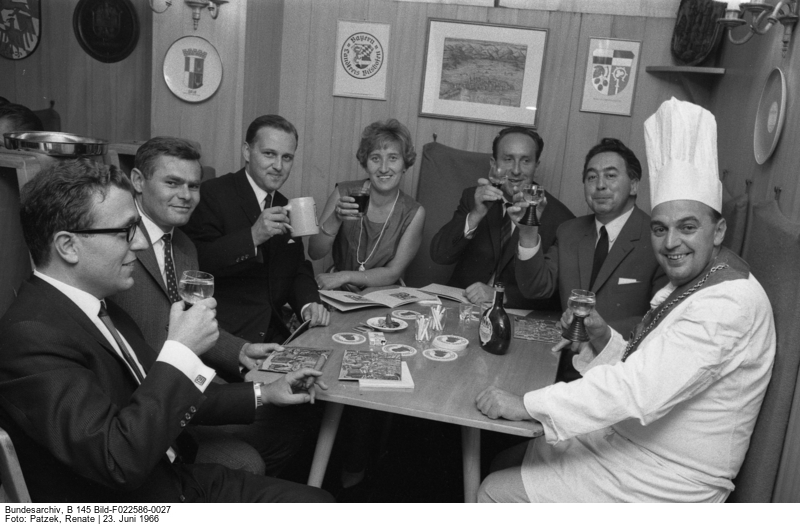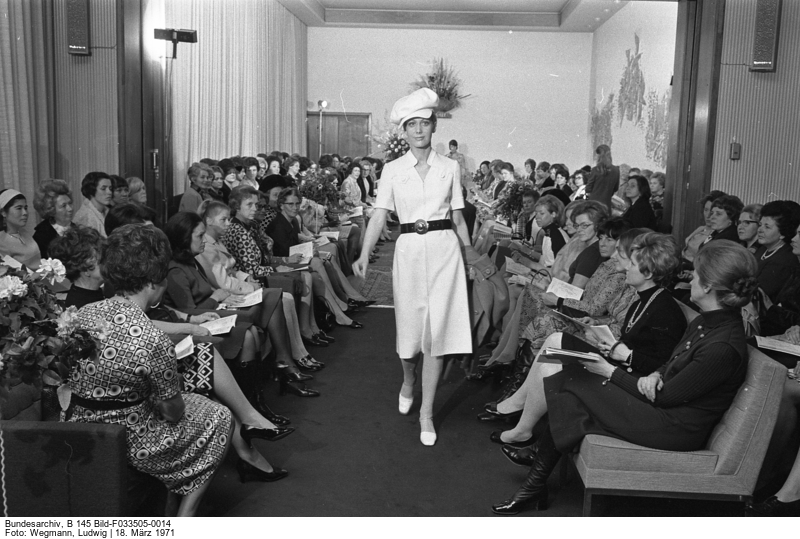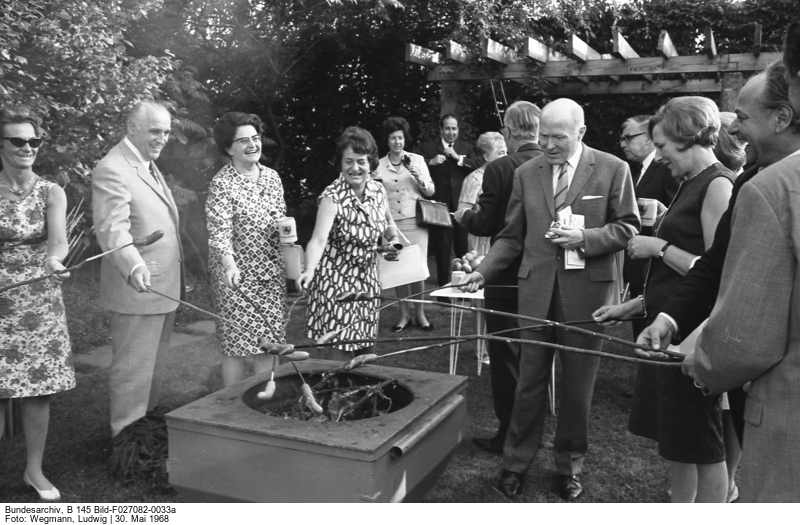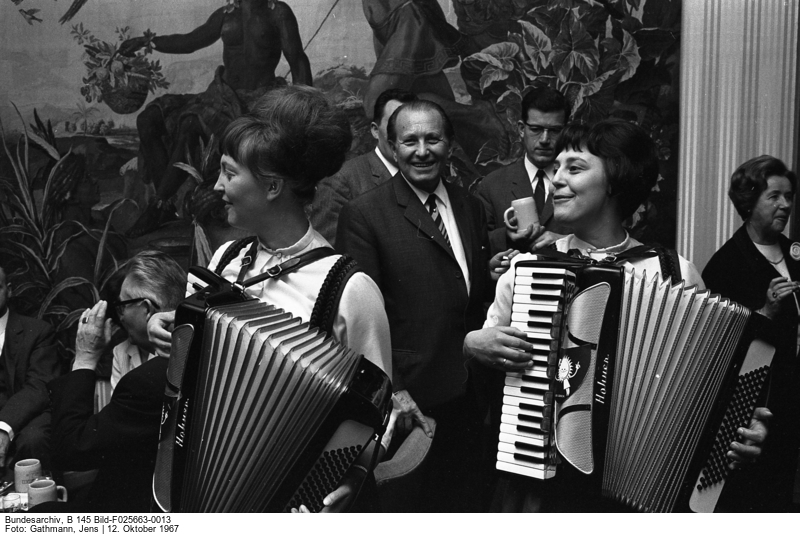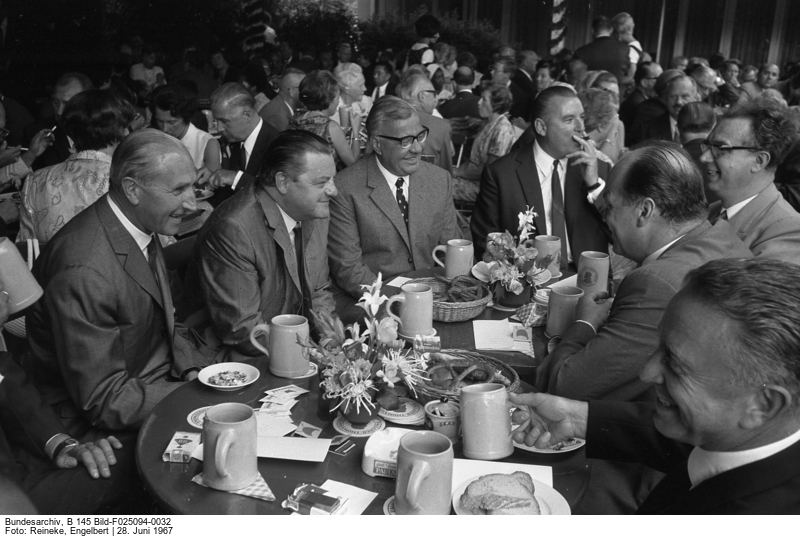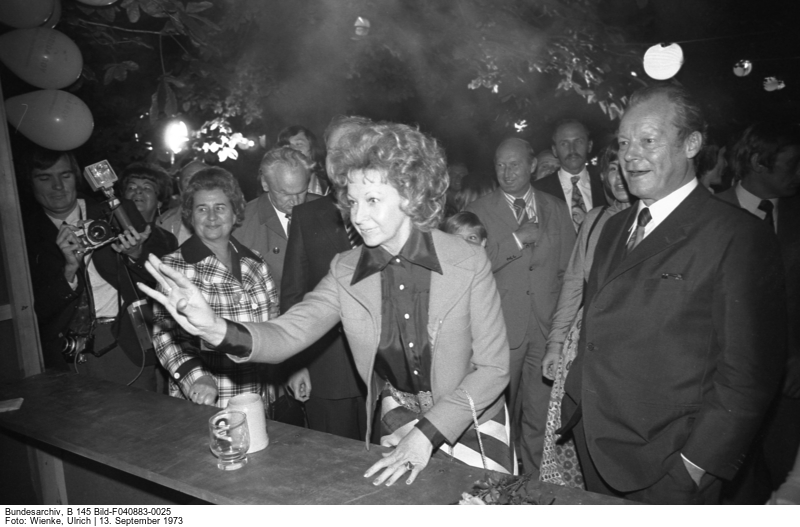Today, the former building of the State Representation Office of Bavaria houses the headquarters of the Stiftung Deutscher Denkmalschutz Foundation, 2002.
Freistaat Bayern State Representation Office
Bavarian specialities were tasted at a reception in the State Representation of Bavaria on 23 June 1966.
A fashion show on 18 March 1971 turned the State Representation of Baden-Württemberg into a catwalk.
At the exhibition "Stuttgart today" on 30 May 1968, the guests had a sausage barbecue in the garden of the Landesvertretung Baden-Württemberg.
Accordion players performed at the opening of the exhibition "Land of special crops" on 12 October 1967 at the State Representation Office of the State of Baden-Württemberg.
On 28 June 1967, the guests celebrated the summer festival in the State Representation of Bavaria with beer and pretzels, typical of the state.
Federal Chancellor Willy Brandt and his wife Rut visited the "Laubenpieperfest" on 13 September 1973 in the State Representation of Berlin.
